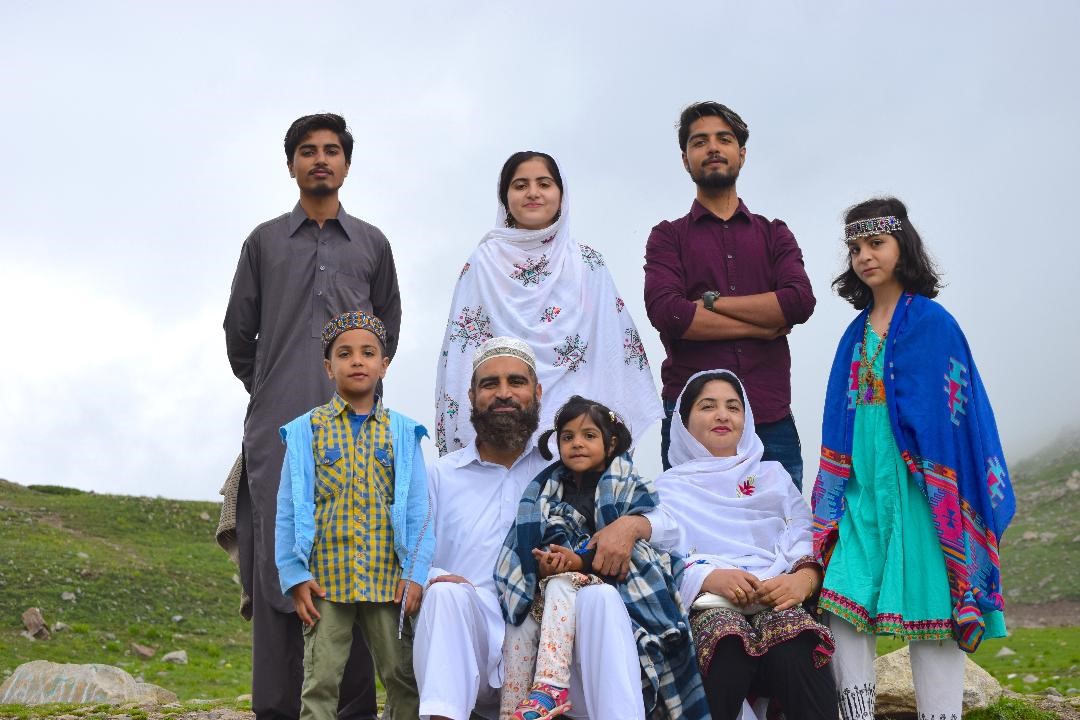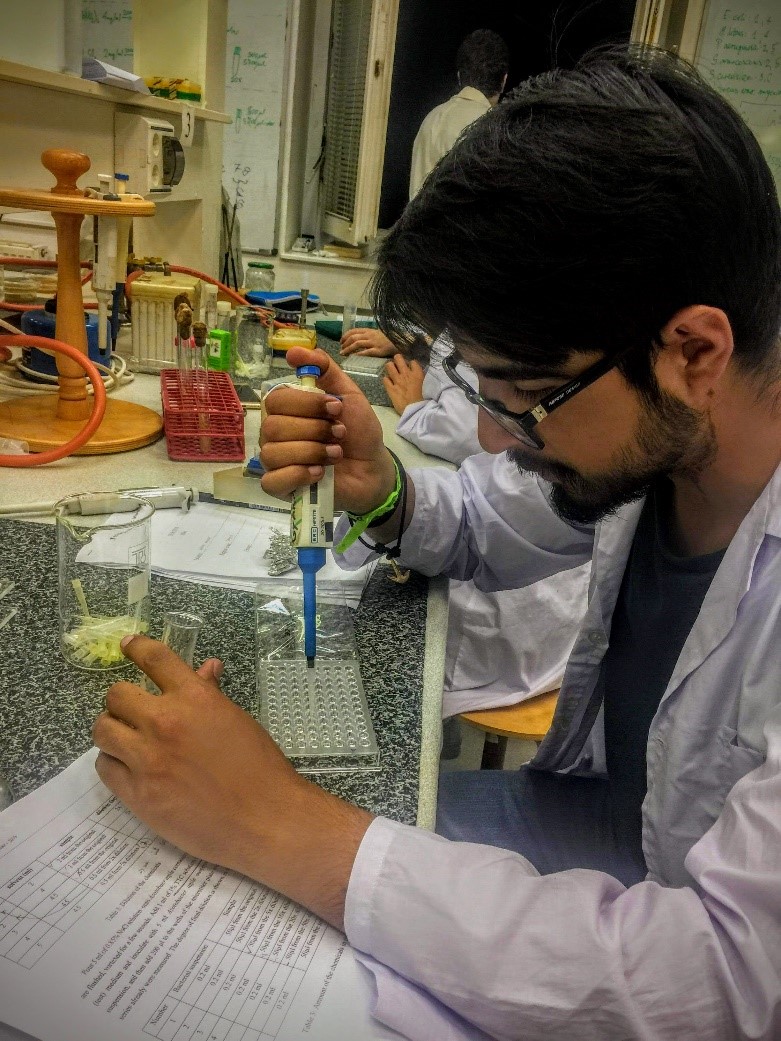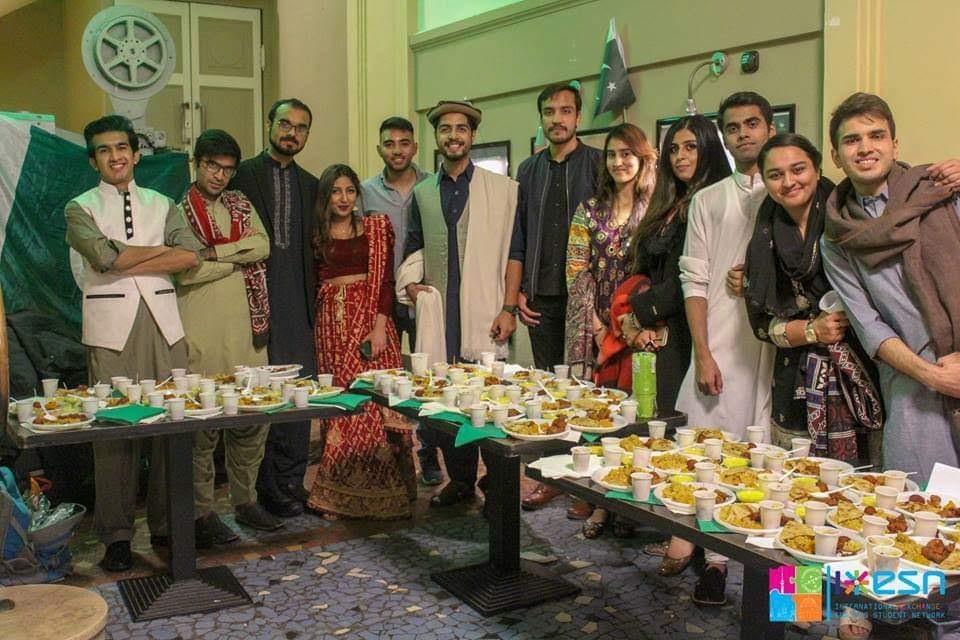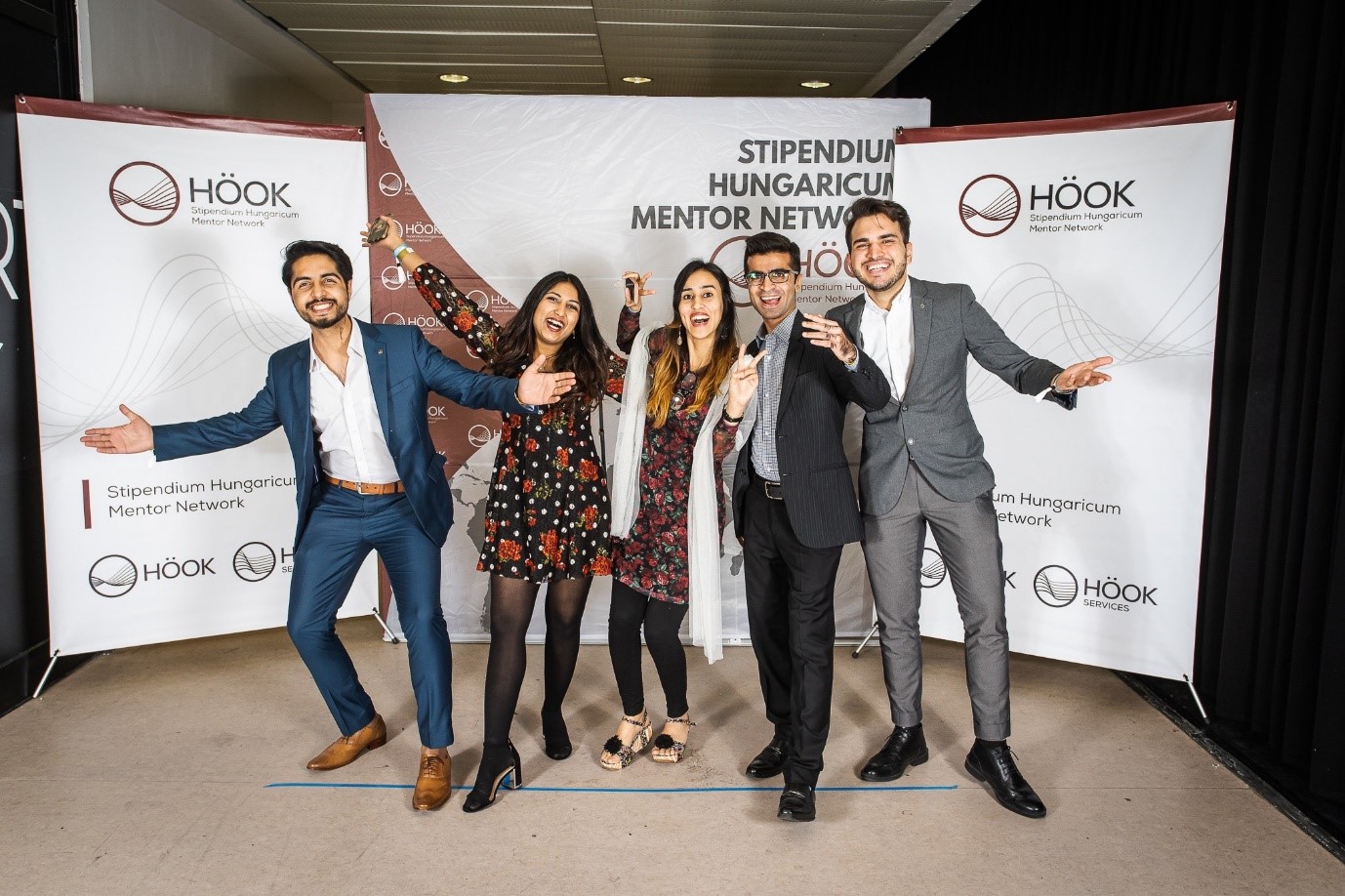Surprising Expats: Shaheer Ahmad, University of Pécs Alumnus
- 14 Mar 2023 5:48 PM

When Shaheer boarded the Budapest-bound plane in his home city of Islamabad, he had not only never been to Hungary before, but he had also never been to Europe nor even crossed the border out of Pakistan.
His five siblings accompanied him to the airport, and while his mother cried at the prospect of her son’s departure, Shaheer’s father remained strong, repeating his reassurances that in the event that things did not work out, he would come and help him, but also adding, “You have to study, you have to make us proud.”

Shaheer’s family
“I was studying hard for medical school in Pakistan,” Shaheer explains, but competition is very tough. There are very few places, and every year those who are not taken apply again the following year – and again the year after that. It means that the number applying rises exponentially every year. Everyone wants to work in the medical profession, or as an engineer or a businessman; they are the main three things in my country.
“The funny thing is, that I was actually accepted to medical school in Islamabad, I passed the tests, and then I was asked to go for interview, but the tuition fees were so high that my father said he couldn’t pay them.”
Soon thereafter, his father saw an advertisement for the Stipendium Hungaricum offering overseas students the opportunity to study a range of subjects in English at Hungarian universities, with their fees waived and subsidies towards accommodation costs. “I applied and was selected, and I began my studies in September of 2017.”
On his flight, Shaheer happened to meet another student also heading for university life in Hungary. This proved fortuitous since when they arrived at Budapest airport, there was no-one there to meet them. “There had been a problem with the internet, and the emails that welcome you and tell you what transport to take hadn’t arrived. I really had no idea at all where to go.” And Shaheer was bound for the southern city of Pécs!
After exchanging his Euros for Forints, and carrying a 25-kilo suitcase and 8 kilos of hand baggage, he took the bus to Kőbánya-Kispest with his fellow countryman, and from there, the M3 metro to Nyugati station.
“And no-one speaks English!” he recalls, as he relates the struggle to find out how to continue his journey. “I was wearing typical Pakistani dress, and I approached a policeman and asked him how to get to Pécs. He told me to go to Keleti station and get the Intercity train. All the time, he was looking me up and down, you know, and when I left my hand baggage behind by mistake, he shouted to me to remove it straight away!” recalls Shaheer, laughing.
Shaheer was to study for a B.Sc. in Biology. “My years in Pécs were really good,” he reminisces. “I learnt a lot and I changed a lot. Before, I had some fixed concepts about life, but now I realise that there are other ways. I learnt that the things you come to realise on your own, through your experiences, are much more important than the things you read.”

Shaheer works late in the university laboratory
“I was together with students from Mongolia, from Kazakhstan, from Africa, China, Japan and France.” Shaheer felt, however, that there could have been more contact between the overseas and the Hungarian students. “I believe the university could have organised it in a way where that there could have been events inviting students from both the Hungarian and the English-taught programmes,” he says, “but there was one dinner, just before Christmas, when we were together.”
Under the auspices of the Erasmus Student Network, however, there were many activities for the overseas students. “We had country presentations in which we introduced our countries to the other students,” Shaheer recalls enthusiastically. “We also invited the Hungarian students for dinner which we prepared, and we learnt we had to moderate our use of spices!”

Winners of the Erasmus ‘Country Presentation’ Event with traditional dishes
Shaheer became a Student Ambassador for the University of Pécs during his time there. This involved him in giving webinars to prospective students overseas, introducing the university, its programmes, events, its administrative processes and information about accommodation. He also answered email enquiries from would-be students.
In addition, he worked as a senior journalist for the university’s magazine in which he wrote articles both on general themes, and those related to his studies. “I was also the senior Biosciences Representative - I assisted the biology class with day-to-day issues, and I liaised between the students and the faculty.”

Stipendium Hungaricum Gala for Mentors
Of his life generally in Pécs, Shaheer says, “Pécs is good for living a peaceful life, it’s relaxing, a perfect place to concentrate on your studies. In the town, people would just stare at me if I was wearing my traditional clothes – but that’s just curiosity, they want to see what’s different. I didn’t have a problem with that. Differences are interesting.”
During his time as a student, Shaheer came into contact with Amnesty International - an interest which followed him when he moved to Budapest and continued his association with the organisation. His interest in Sustainable Development Goals, particularly that of poverty, is something to which he would like to apply his newly-acquired skills, probably back in his home country to make everyone in society independent through the acquisition of skills.
At the conclusion of his four years’ study, Shaheer returned to Pakistan for a family wedding. His initial intention was to return home permanently after his studies, but friends encouraged him to undertake an M.Sc. – advice he has accepted.
Shaheer is now planning to undertake a course in coding and IT, as well as a Masters in Biotechnology or Applied BioSciences. “I’d like to improve software technology used for both diagnosis and treatment in healthcare, for example, and in the analysis of markers in the blood which may indicate a lack of immunity to specific illnesses.”
Looking back over his time at university in Pécs, Shaheer concludes: “My experience of being a student in Hungary was a very positive one. You learn a lot, and the professors will alert you to different opportunities such as summer programmes which you can participate in, alongside internships or lab experience; the vibrant international community made my time in Pécs an unforgettable one.
“The teachers were also helpful because I used to ask a lot of questions, and I'm glad I wasn't shy about it. It is a well-known fact that a good teacher always appreciates questions and is further motivated to explain the subject matter in ways that are easy to comprehend.
“The city is full of greenery with lovely forests and two beautiful lakes where you can spend your weekends, go hiking or enjoy picnics. And for me, Pécs always feels like home as it has that sweet warmth that I can’t find in Budapest.

Graduation
“During my stay in Hungary, I didn't experience any significant communication or social challenges. The locals, in my perspective, were merely interested in our cultural attire and cuisine. I had a wide variety of interactions with both local and international people. Over these years, I have learnt a lot from the Hungarians, and I have a different perspective of them. They are hardworking people who stick to their roots and know what they stand for. Some of them are shy to speak English, but we managed to communicate with igen and koszönöm.
“The overseas students had local as well as international connections, and we would invite Hungarian students to our house for dinner. In return they would show us their culture, traditions and food and we could see that all of us are similar in one way or another. The whole experience was just something irreplaceable.”
Marion Merrick is author of Now You See It, Now You Don’t and House of Cards and the website Budapest Retro.
If you would like to be interviewed as a Surprising Expat, please write with a few details of what you do, to: Marion by clicking here.























